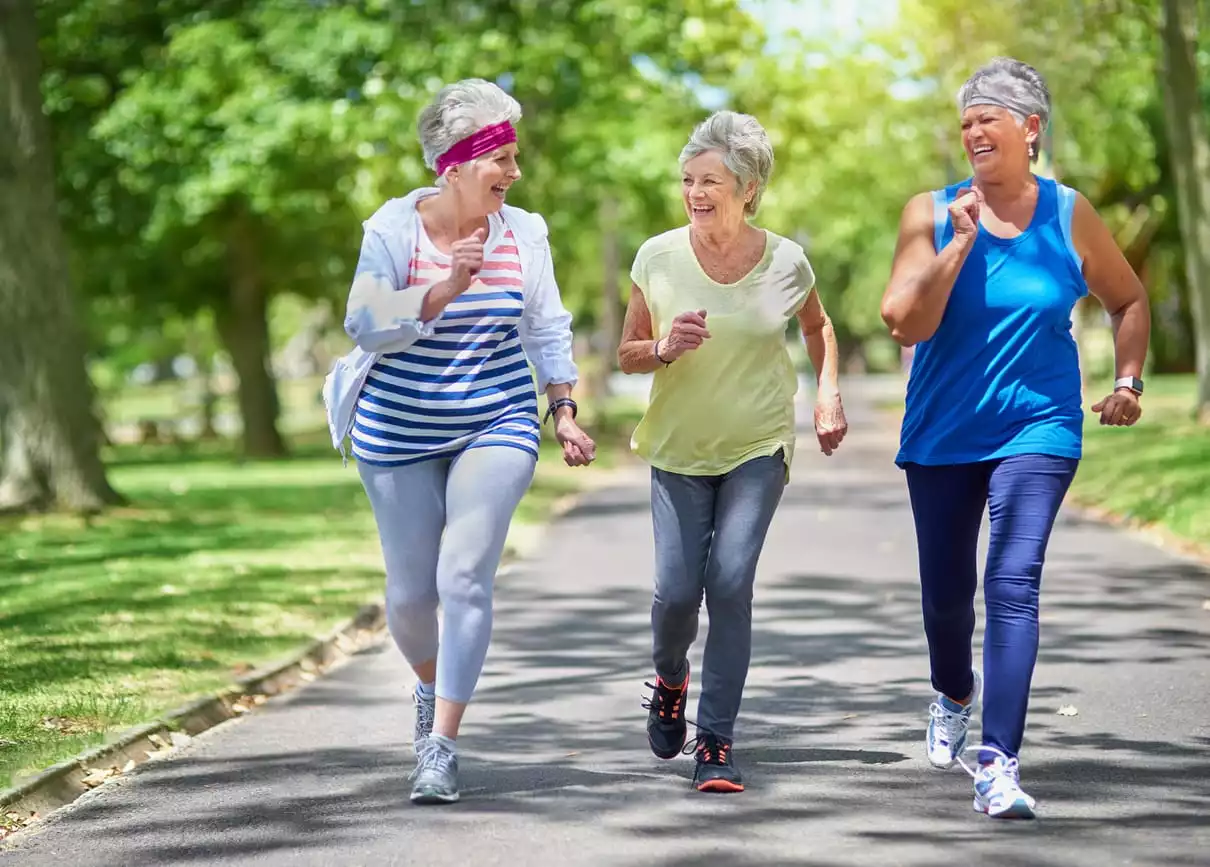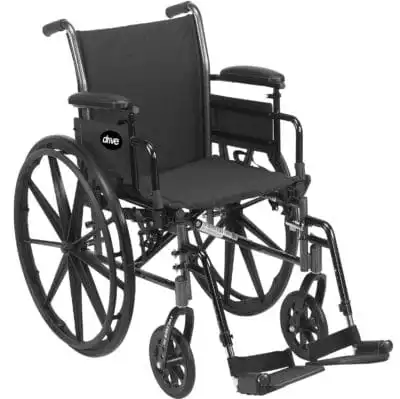
Aging can increase your risk for illness and injury, but it doesn’t have to take away your ability to stay healthy, happy, and well altogether. Focusing on your own wellness is the best way to extend your life and get as much enjoyment out of daily activities as you possibly can.
If you’ve neglected good wellness habits a little bit up until now, know that all is not lost: there’s no time like the present to get and stay well long into later life. Every senior citizen should develop these five healthy wellness habits to keep happy, healthy, and well long into later life.
1. Remain as Active as Possible
Growing old may change your ability or function levels, but for most patients, it shouldn’t prevent you from exercising altogether. Often, adjusting how and when you exercise is all that’s needed to make fitness possible for you once again.
Most experts agree that a small amount of exercise per day is exactly what’s needed to keep you healthy, happy, and fit long-term. However, getting motivated to exercise (or staying motivated to keep exercising) isn’t always easy. After 60, our bodies just don’t bounce back as quickly as they once did, so most patients will need to make adjustments to their routine.
If you’re struggling mostly with motivation, think positively. Many patients find it easier to stay fit if they focus on the benefits. New and promising research coming down the pipeline reveals that exercise is beneficial for not only the body, but the brain, too, keeping you sharp and witty well into your Golden Years.
When you exercise regularly, you maintain your physical body and encourage brain cell health at the same time through the physical release of brain-and-body boosting chemicals. These little daily releases may ward off physical conditions like Alzheimer’s Disease (AD) while also preventing the following:
- diabetes
- hypertension
- heart attacks
- strokes
- mood disorders
If you are a senior citizen and haven’t been active in a while, or if you struggle with illnesses that prevent you from enjoying full mobility, you may feel stiff, exhausted, or sore after even moderate exercise. Feeling this way can be a result of being out of shape, but it can also point to conditions like arthritis or degeneration, too. It’s always best to see your doctor before you begin a new exercise routine (even if it’s casual).
If your physician clears you for exercise, getting 30 to 60 minutes per day at whatever level you’re currently at is ideal. What this looks like exactly will vary by patient. You might:
- Walk to the mailbox yourself versus having someone bring it in
- Join a swimming and water aerobics class for people over 60
- Go hunting, fishing, hiking, or just plain walking around a local park
- Head out window shopping downtown on foot with a friend
- Take up Tai Chi, Qi Gong, or yoga at a local dojo or studio
- Join a hobbyist’s group and learn a new active craft or sport
- Take up volunteering at a local nursing home, hospital, or care home
The options are endless; it’s up to you to choose which activities you find most inspiring and comfortable.
Staying Fit With Limited Mobility

That’s okay!
The great news is that staying active is possible at almost any level of health. Try a trip around the block or a “walk” with a local friend instead. Or, gently stretch your body as is comfortable for you while remaining seated in your chair.
Don’t neglect your need for human comfort and creativity, either. Socialize at local card groups, take up knitting or quilting, or create a lap-level garden on your patio you can tend to.
If you really continue to struggle with staying fit, ask your doctor to send you an occupational therapist or physical therapist. Despite the name, occupational therapists work with more than just the working population; they can assess and make recommendations for mobility aids that empower you to regain some of your lost function. Your physical therapist can prescribe exercises that meet you at your level for greater comfort and function.
2. Stay on Top of Oral Health
There’s an assumption that age produces poorer oral health, but age shouldn’t dictate whether or not you keep your teeth. While dental caries and broken teeth are certainly more common, very often what leads to severe tooth decay is not inherent but rather a result of poor dental hygiene.
A lack of proper dental care doesn’t always occur by choice. Some patients can’t afford to see a dentist, while others don’t have insurance. Still others with arthritis in the hands may find it difficult to brush or floss. A senior citizen with significant gingivitis or loss may have various levels of bleeding along the gums or sensitivity that make staying on top of oral health hard.
To regain or maintain your oral health, brush at least three times per day (morning, noon, and night) and floss at least twice per day. See your dentist at least every six months, and if you experience any pain or bleeding, schedule an appointment right away. If brushing is painful, special toothbrush handles or soft-bristled brushes may ameliorate the pain.
One small tip: don’t assume you need to brush your teeth right away after eating. Many patients over 60 learned to brush directly after meals in high school, but we now know that brushing directly after acidic foods may injure enamel. Wait 15 minutes and then brush for best results.
3. Get a Checkup
When was your last checkup? If you’re like many patients, the answer is “sometime in the last few years.” As we age, our need for checkups doesn’t sink; rather, it rises. Instead of needing a yearly checkup, a senior citizen should have a bi-yearly or even quarterly checkup to address the increased risk for conditions like high blood pressure and heart attack as they age. Early detection of chronic conditions improves prognosis.
Frequent checkups serve an additional benefit, too: checkups increase the likelihood of detecting certain cancers in the early stages, making them easier to treat. So make it one of your wellness habits to get checkups regularly.
4. Drink Plenty of Water
Though it’s one of the simplest wellness habits, this one tiny step is a big enough issue that many seniors aren’t adequately hydrated on a regular basis. Chronic dehydration can increase your risk for everything from headaches to obesity, and may also play a role in adequate oral health, too. It can also make you feel dizzy or weak, increasing your risk for serious injuries via falls.
Keep an icy-cold bottle of water by your side throughout the day. Aim for drinking around eight individual 8-ounce bottles of water per day. Increase this when you’re active; decrease it slightly if you feel overstuffed or if your urinary output becomes completely clear.
Don’t forget that sodas and other salty or sugary drinks can dehydrate you rather than refreshing you. A senior citizen should also remember to include the occasional glass of water when drinking alcohol or soda on warm days, as the risk for heat stroke/heat exhaustion is higher over the age of 60. Though you may feel refreshed, you’re still losing important electrolytes and fluids!
5. Attend to Your Mental Health
You don’t need to struggle with dementia or cognitive dysfunction to experience mental health struggles as a senior citizen. The CDC points out that up to 3.6 percent of people in America who are classed as seniors experience psychological distress on a regular basis. That strife can come in the form of depression, anxiety, personality disorders, Post-Traumatic Stress Disorder (PTSD), or even existential crisis.
Whatever the reason you’re struggling with emotions or mood issues, know that your age does not preclude you from seeking (or deserving) help. Talk therapy is especially helpful and can benefit just about every patient. Sometimes, just having a caring ear is enough to reduce stress.
Make it one of your wellness habits to check in with yourself regularly to see if you are taking care of your mental health in addition to your physical health. If you’re still working, are you enjoying your work? Do you feel overwhelmed by tasks at home? Do you look forward to each day and find enjoyment in it? If not, you may be neglecting your emotional health. Schedule more relaxation, take up a hobby, or just get outside on a nice day. If you’re feeling isolated, find ways to get out into the community and socialize. You matter, and deserve the attention!

 info@burtsrx.com
info@burtsrx.com